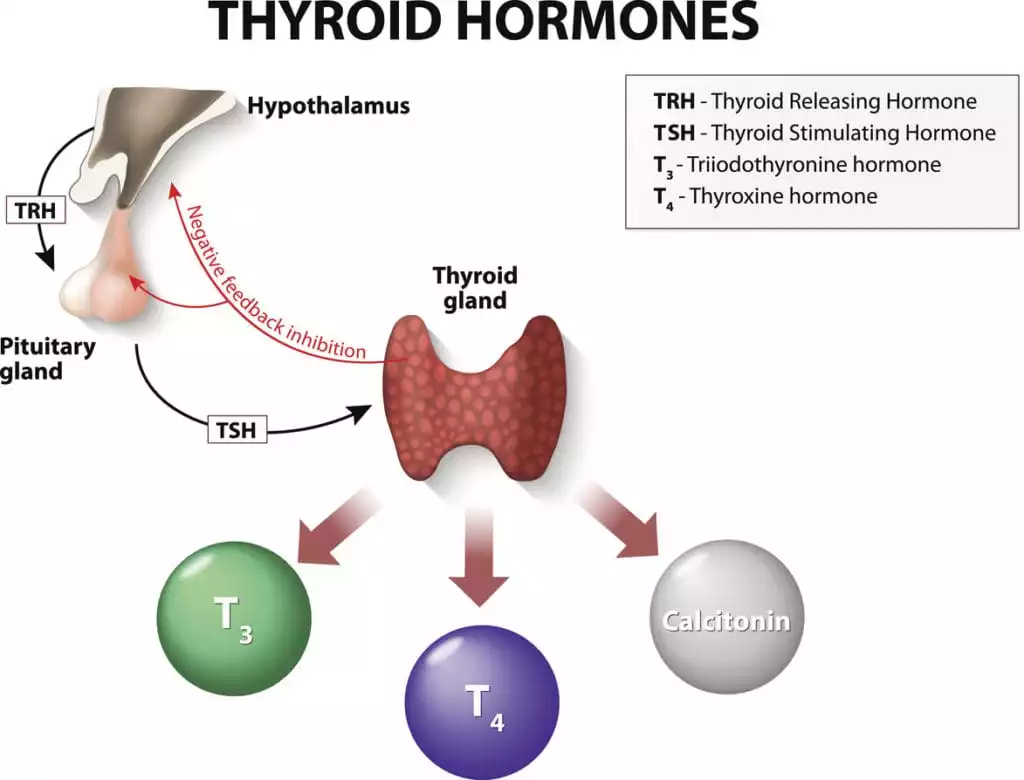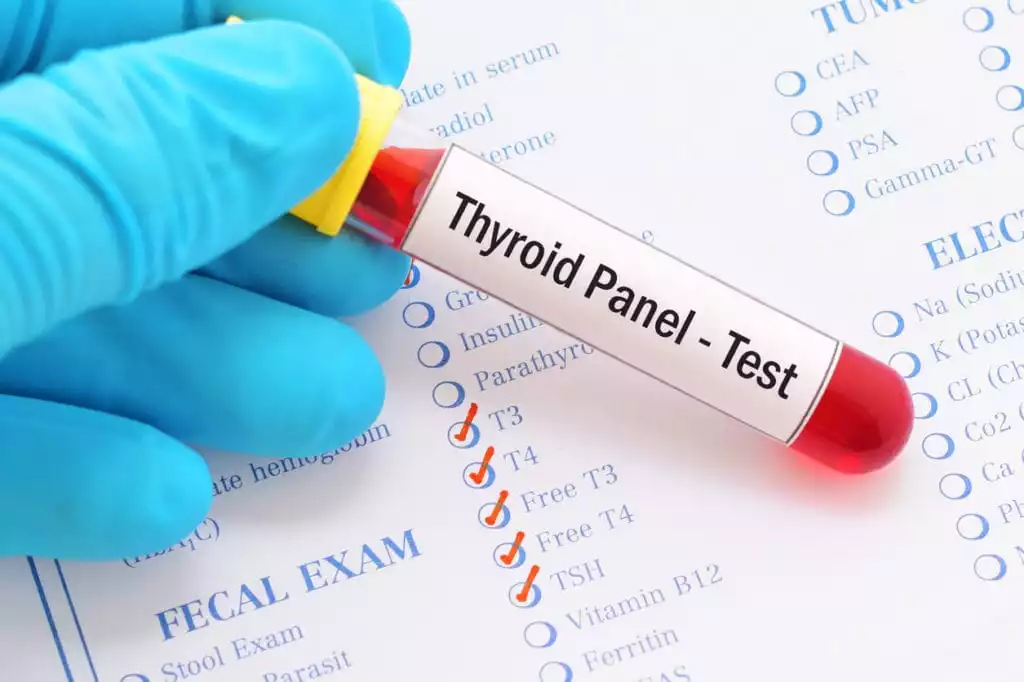
January is Thyroid Awareness Month, however many people are unaware of the purpose and importance of your thyroid. Your thyroid is one of the most important hormone-producing organs in the body. It sits in the base of your throat, where (when healthy) it steadily releases calcitonin, thyroxine and triiodothyronine, three substances that have a direct and immediate impact on metabolic functions like heart rate, respiration, brain function, weight management, mood, appetite, and even memory.
Thyroid Awareness Month
In honor of Thyroid Awareness Month, we want to help you better understand your thyroid and the hormones that influence it. Whether you’re already struggling with a thyroid condition or you love someone else who does, this information will help you prepare for the future, protect yourself, and provide support.
Thyroid Hormone Classification
Thyroid hormones fall into five individual categories: T0, T1, T2, T3, and T4. Researchers don’t know much yet about how T0 (a precursor to the others) works in the body, but we know more about T1 to T4. T1 and T2 precursors are relatively inert, and thus, don’t really influence thyroid activity. T3 is triiodothyronine and T4 is thyroxine itself. T3 and T4 directly influence each other. Too much or too little of even one of these important hormones can skew the thyroid’s function off-track.
The Thyroid Triad
This Thyroid Awareness Month, we want to explain exactly what the thyroid does, and why it’s so important. It is so important because the thyroid doesn’t work alone; instead, it is part of a three-part triad that includes two other important body parts: the hypothalamus (part of the brain) and the pituitary gland. In a healthy human, the hypothalamus releases a chemical called thyrotropin-releasing hormone that stimulates the thyroid into action. The pituitary gland releases thyroid-stimulating hormone that also stimulates the production of the three health-critical hormones in the first paragraph.
Thyroid Trouble
Another part of the importance of Thyroid Awareness Month is understanding what it means to suffer from thyroid problems. Unfortunately, thyroid health can be a tricky topic for many patients. Congenital and age-related conditions can impact how the thyroid works, as can certain medications or surgeries. Some patients produce too much thyroid hormone (hyperthyroid), while others produce too little (hypothyroid). Both production states can have serious consequences for patients ranging from fatigue to life-threatening thyrotoxicosis.
Because of the thyroid’s alliance with other parts of the body, testing usually looks at both the function of the thyroid itself and the function of the hypothalamus or pituitary gland. Blood tasks that show too much thyroid-stimulating hormone, for example, may point to a condition called hyperthyroid. Other patients may show incorrect values right across the board as well as thyroid inflammation – this is often a result of autoimmune conditions like Hashimoto’s Thyroiditis.
When thyroid conditions strike, hormone suppression or supplementation can often safely and effectively correct hormone levels. Physicians often prescribe hormones and hormone blockers to restore this balance. Restoring balance isn’t always easy; micro-adjustments and dose changes are often needed, and physicians often use a combination of bloodwork and patient reports to determine when the dose is just right.
Benefits of Bioidentical Hormones for Thyroid
Hormone treatment is an incredibly complex and multifaceted area of medicine. Every person responds to treatment differently, and what works for one person may not necessarily work for another. Unfortunately, commercially-available manufactured pharmaceuticals often do a poor job of providing highly-customizable treatment options for patients. This can leave patients coping with undesired side effects or delivery formats that cause more struggle than they alleviate.
With thyroid conditions, simply not treating the illness is rarely an option. The risk of serious illness is much too high, and chronic stress on the body can spur on concomitant health problems. To further complicate issues, some patients seemed virtually unresponsive to synthetic hormones – or if they did respond, they had too many side effects.
Over the last few years, new research is revealing that bio-identical hormone replacement may resolve many of these traditional thyroid hormone treatment options. Unlike synthetics, bioidentical hormones are virtually identical to the hormones your body produces in chemical structure. Many experts believe the body has an easier time recognizing and utilizing bioidenticals for this reason. This makes them less likely to produce negative side effects or fail to treat your condition at all.
Natural Vs. Synthetic
Thyroid hormones come in two forms, synthetic or natural. The most common synthetic is Synthroid, a manufactured pharmaceutical containing the base ingredient levothyroxine. This drug, which is made in a lab, is a close match to thyroxine (T4). Synthroid mimics the presence of your body’s natural thyroxine, balancing out thyroid functions. Synthroid is entirely man-made, meaning it does not contain any animal materials at all.
Another synthetic, Cytomel, provides the body with T3 (triiodothyronine). Although triiodothyronine doesn’t impact the thyroid on its own, it spurs on the production of T4 which does have the necessary desired effect. However, neither Cytomel or Synthroid provide the body with the last missing element: calcitonin.
“Natural” thyroid hormones include Armor thyroid, a commercially available medication made from dessicated pork thyroid glands. Unlike Synthroid, these natural elements contain Thyroxine (T4), T3, T2, and T1 elements as well as calcitonin. This wholistic approach may prove more effective for patients who fail to respond to traditional synthetics. This may be because porcine-sourced products are much closer to an exact match with your body’s natural hormones and precursors. Some researchers also believe that the addition of calcitonin may be the key for effective treatment.
Does It Work?
There’s no easy and complete answer to this question. Truthfully, balancing thyroid hormones is both an art and a science that can be incredibly difficult for even the most qualified endocrinologists. It would be irresponsible to suggest that synthetics are always bad or that bioidenticals and naturals always work.
That said, there is a significant amount of empirical evidence supporting the fact that patients feel better and respond better to bioidentical hormones. An article in the “Journal of Endocrinology, Diabetes & Obesity” from 2014 highlighted the cases of 450 patients receiving treatment for hypothyroidism. Within the study, nearly 78 percent of patients reported preference for natural bioidenticals over synthetics based on a selection of factors relating to blood samples and symptom resolution.
Another double-blind study from 2013 randomized dessicated naturals with synthetic levothyroxine. Out of 70 patients, nearly half lost more weight and “preferred” the dessicated hormone treatment when asked; even though they weren’t aware of which they were receiving until afterward. This study shows that least some patients seem to benefit more from natural bioidenticals over synthetics.
Does this mean that naturals or bioidenticals are right for every patient? Absolutely not. Hormone supplementation as a treatment is not a one-size-fits-all approach; it works for some patients and not at all for others. In the spirit of Thyroid Awareness Month, we encourage all patients to think carefully about their options and work closely with pharmacy team members. Your local pharmacy will be able to help you find which treatment is best for you, whether that’s synthetic hormones, bioidentical hormones, or compounded thyroid medications.
Educating yourself during Thyroid Awareness Month on how your thyroid works and doing everything you can to keep it healthy long-term will always help you to feel your very best, no matter what your age.

 info@burtsrx.com
info@burtsrx.com

